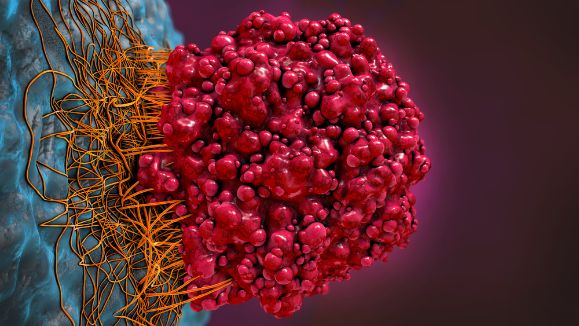Hodgkin lymphomas are cancers of cells called lymphocytes, which are part of the immune system and protect the body from infection. In Hodgkin lymphoma, the lymphocytes grow out of control and collect in parts of the lymphatic system, including the lymph nodes, spleen, and bone marrow. These abnormal lymphocytes, which are also called Reed-Sternberg cells, interfere with the normal function of the lymphatic system and lead to tumor growth.
Lymph nodes are bean-shaped structures that filter lymph (a fluid) and store white blood cells that fight infection and disease. They are found along a network of lymph vessels throughout the body, in groups of two or three in the chest area (mediastinum), underarms, neck, abdomen, and groin. The spleen is an organ that makes lymphocytes, stores red blood cells, and destroys old blood cells. When the lymphatic system becomes swollen, it can press against the organs and cause symptoms.
Doctors use several tests to diagnose Hodgkin lymphoma. They may cut and remove a lymph node to look for cancer cells, or they may test a sample of fluid from a lymph node or other lymphatic tissue for signs of cancer. If they find cancer, they can use other tests to stage the disease and determine what treatment is best for you.

Staging refers to the extent and severity of the disease, and it helps doctors plan your treatment. When the lymphoma is in its earliest stages, it’s considered to be stage I or stage II Hodgkin lymphoma. This type of lymphoma is less likely to come back after treatment than other types.
To stage your lymphoma, healthcare providers use results from a physical exam and blood and urine tests. They may also order an imaging test, such as an MRI or CT scan, to look for tumors in your lymph nodes and other tissues. They may also ask about your symptoms, such as fever, weight loss, and drenching night sweats.
If you have early favorable adult Hodgkin lymphoma, your doctor may recommend that you participate in a clinical trial to receive radiation therapy and chemotherapy instead of standard treatment. These studies are designed to improve long-term survival and reduce side effects. In some cases, your doctor may recommend a stem cell transplant for people who have recurrent Hodgkin lymphoma that doesn’t respond to other treatments.








